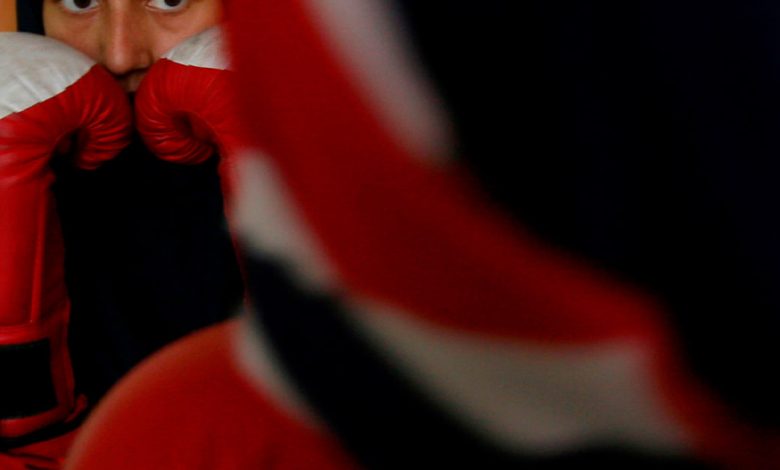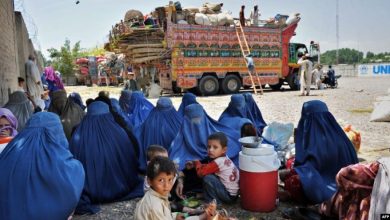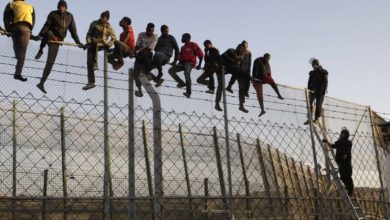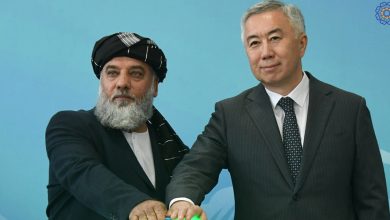
Life Story of an Afghan Woman Refugee in Pakistan
Sayed Mahdi Hussaini
Bayan News – One of the most significant social changes following the political transition in Afghanistan after August 15, 2021, was the severe restrictions imposed on women and girls.
The Islamic Emirate, in the early days of its rule, issued numerous decrees that limited the rights of Afghan women and girls, particularly banning girls’ education, preventing women from working, restricting their freedom of movement, and imposing other social constraints. These decrees pushed Afghan women and girls backward and created a dark and uncertain future for half of the country’s population.
The restrictive measures imposed by the Islamic Emirate forced Afghan families to resort to involuntary migration in search of a brighter future for their children, especially their daughters. Most of these families ended up in Iran and Pakistan.
These limitations disproportionately affected talented individuals and elites who had once brought pride to Afghanistan, making their path to migration even more challenging than others.
Nargis Akhlaqi, the only female medalist who proudly raised the Afghan tricolor flag in the 2013 World Taekwondo Championships in South Korea, is now in Pakistan, struggling with the hardships of refugee life.
Ms. Akhlaqi began her sports activities in the field of Muay Thai in Kabul after 2010. Her efforts paid off when she participated in the 2013 World Taekwondo Championships in South Korea and won a medal, waving the Afghan tricolor flag.
With this achievement, Nargis became the first female medalist from Afghanistan. After this honor, she expanded her sports activities in Kabul and established a sports club to train girls and young boys under 20 in the field of Muay Thai.
Besides establishing the sports club, she also served as the Chairwoman of the Women’s Committee and the coach of the national Muay Thai team, becoming the first female international referee for Afghanistan. Additionally, she obtained her degree in Muay Thai from Thailand.
Despite her achievements and sports endeavors, the political changes in Afghanistan dramatically transformed her life. She was compelled to migrate in order to continue her activities and fulfill her dreams. Eventually, two years ago, she arrived in Pakistan.
This Afghan medalist, who has not tasted the bitter experience of migration, initially faced psychological and emotional challenges upon her arrival in Pakistan. In order to overcome these mental and emotional difficulties, she is determined to resume her sports activities in the Afghan Relief Institute in the disciplines of fitness and Muay Thai. Therefore, she provides sports training and coverage for girls and boys under 20 who are interested in sports.
However, Nargis Akhlaqi states that she wants to continue her sports activities in Pakistan to not only support her daily life but also to collaborate with other refugee girls in terms of their mental and emotional well-being.
Although Nargis has recently started her sports activities, luck is not on her side. The Pakistani government has decided to deport Afghan refugees, which has added to Nargis’s and her family’s concerns.
Nargis, along with other Afghan refugees, has no intention of returning to Afghanistan because all avenues of success and a bright future for women and girls in the country have been closed, and everyone has become confined to their homes.
She says, “I was among those who were forced to migrate to Pakistan due to the political transition and social restrictions. However, the current situation in Pakistan feels more uncertain than before.”
Despite not having a stable life situation in Pakistan, this Afghan medalist maintains her relationship with female athletes in Afghanistan and keeps in touch with them.
According to Nargis, female athletes in Afghanistan still dream of continuing their sports activities at an ideal level, but the existing limitations make life increasingly difficult for them with each passing day, and the ongoing restrictions have forced them to seek refuge.
After the Islamic Emirate took control of Afghanistan, schools were closed to girls above the sixth grade, and women were banned from working in domestic and foreign institutions.
The authorities of the Islamic Emirate have consistently stated that the current Kabul regime is not against educating girls, but until a safe environment is created for girls, schools will remain closed, and it is unclear how long these restrictions will continue.







